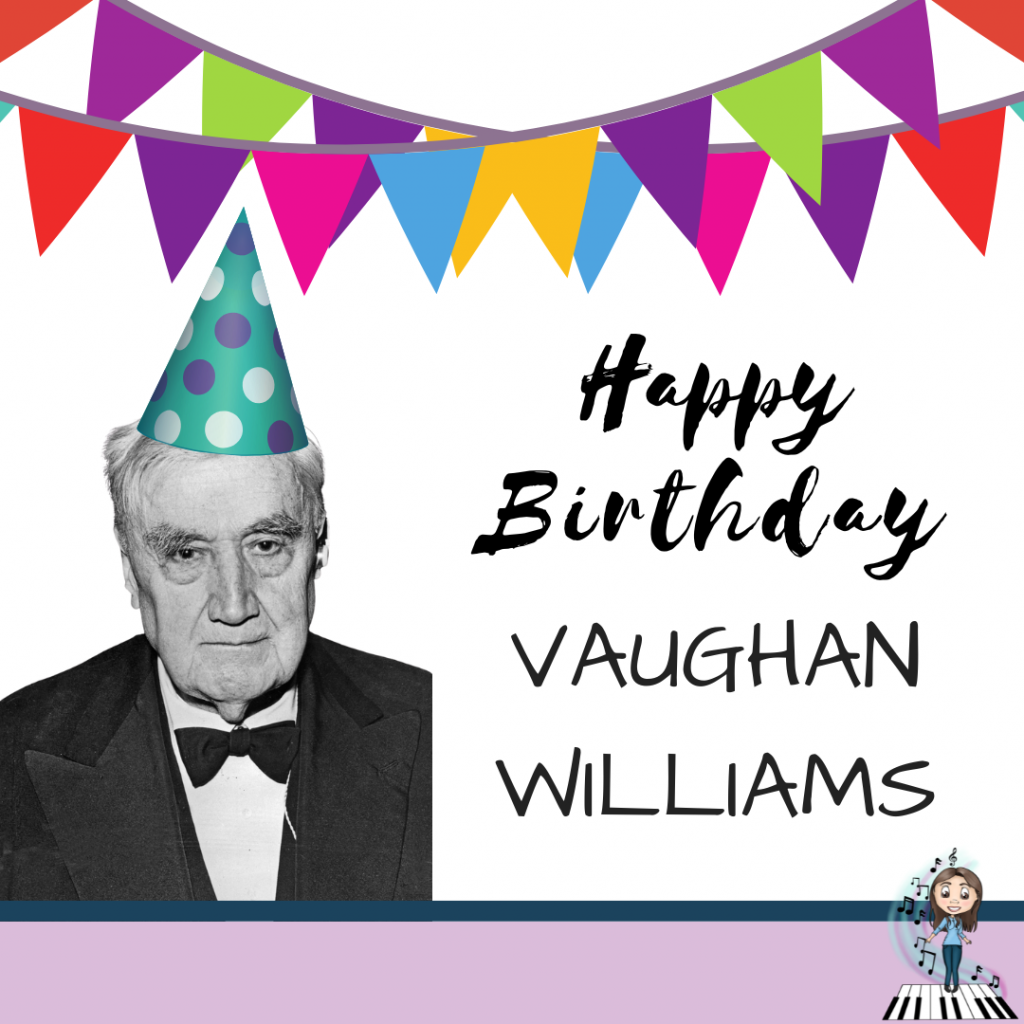
Happy Birthday Vaughan Williams!
Ralph Vaughan Williams was born on this day in 1872. He was an English composer from the first half of the 20th century, .
He was born in Gloucestershire as the third and youngest child of a vicar. His heritage was impressive; his mother was a great-granddaughter of Josiah Wedgwood, and a niece of Charles Darwin. When the young Ralph asked his mother about Darwin’s controversial book “On The Origin Of Species”, she is said to have replied: “The Bible says that God made the world in six days. Great Uncle Charles thinks it took longer, but we need not worry about it, for it is equally wonderful either way.”
At the age of five, Vaughan Williams began taking piano lessons from his aunt Sophy Wedgwood. He showed early signs of great musical ability and composed his first piece of music – a four-bar piece called “The Robin’s Nest” – in the same year. He didn’t particularly enjoy his Piano Lessons, and was pleased when instead he took up Violin in 1879.
In 1890 Vaughan Williams enrolled as a Student at the Royal College of Music in London. After two years he temporarily left RCM and entered Trinity College, Cambridge. Here, he spent three years studying music and history. After leaving Cambridge he rejoined RCM, where he struck up a friendship with fellow composer Gustav Holst. This was to become a lifelong friendship. Each would play their latest compositions to the other while still working on it and would act as the other’s critic.
In 1899 Vaughan Williams passed the examination for the degree of Doctor of Music at Cambridge. In 1902 the first of his works appeared in print; the song “Linden Lea” appeared in The Vocalist and later was published as separate sheet music.
Around 1903, Vaughan Williams began collecting folk songs. He ventured out into the English countryside where he noted down and transcribed songs traditionally sung in various locations. Collections of these songs were published, thereby preserving lots of melodies that would have otherwise been lost over time. Vaughan Williams incorporated some of these songs into his own compositions. This, along with his love of Tudor and Stuart music, helped to shape his compositional style for the rest of his career.
Although he composed steadily, Ralph remained unsatisfied with his technique as a composer. He looked to others, such as Edward Elgar and Vincent d’Indy for help.
Between 1908 and the outbreak of the First World War, Vaughan Williams established himself as a major figure in British music. When war broke out, he volunteered for military service and joined the Royal Army Medical Corps as a private, driving ambulance wagons. He was commissioned as a lieutenant in 1917 and saw action in France with the Royal Artillery. The constant noise of gunfire damaged his hearing and led to deafness in his later years.
After the war, he took some time to return to composing. It was not until 1922 that he produced a major new composition. Throughout the 1920s he continued to compose and teach. Forty of his works premiered during this time, including the Mass in G Minor, Old King Cole and Hugh the Drover.
As the 1930s progressed, Vaughan Williams found inspiration lacking and he suffered his first fallow period since the war years. When the Second World War broke out, he once again was active with civilian work, serving on a committee for refugees from Nazi oppression and on the Council for the Encouragement of Music and the Arts.
After enjoying excellent health through most of his life, Ralph Vaughan Williams died suddenly on 26th August 1958. He was 85 years old. In September his ashes were interred near the burial plot of William Purcell in the north choir aisle of Westminster Abbey.
